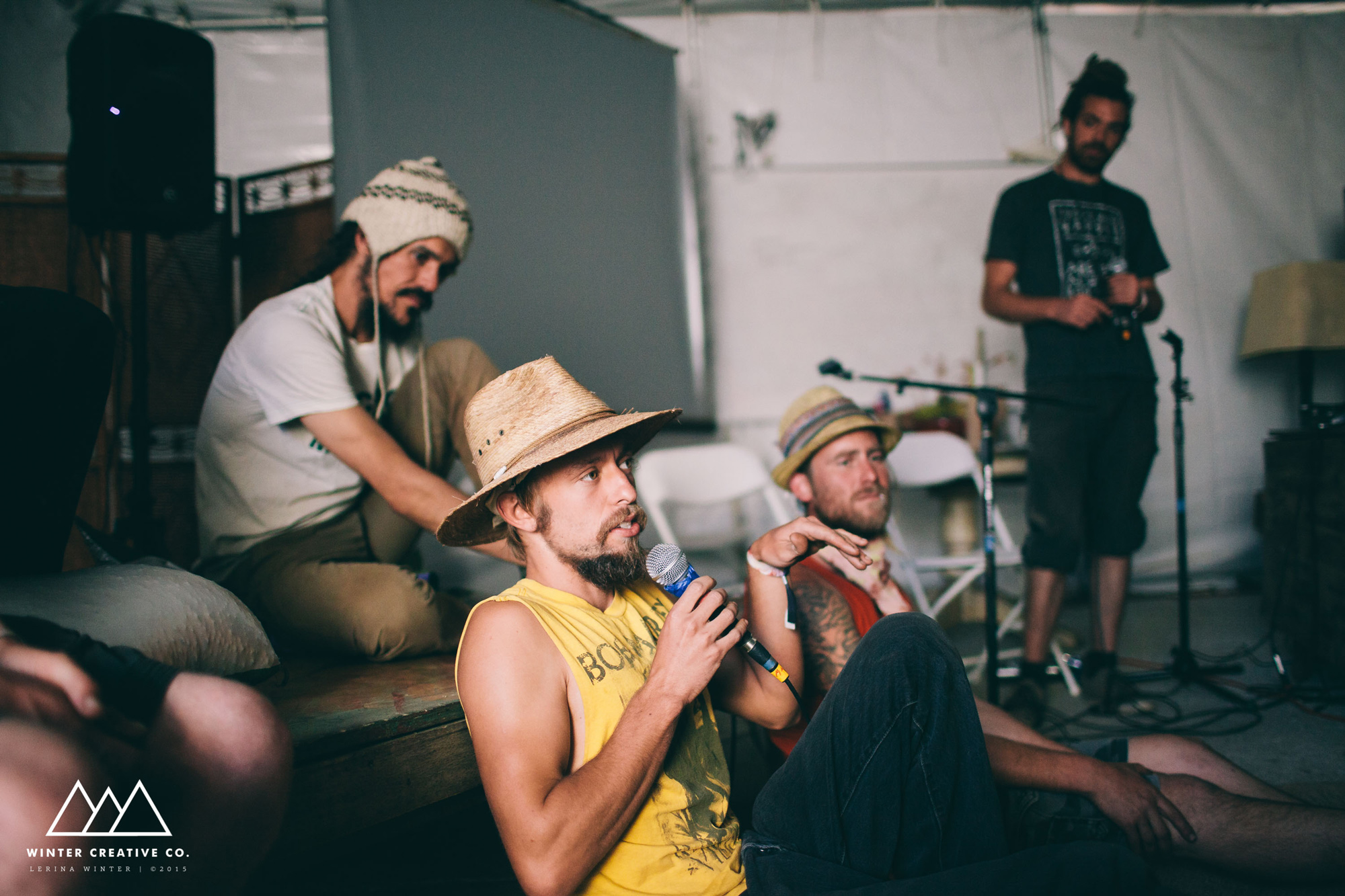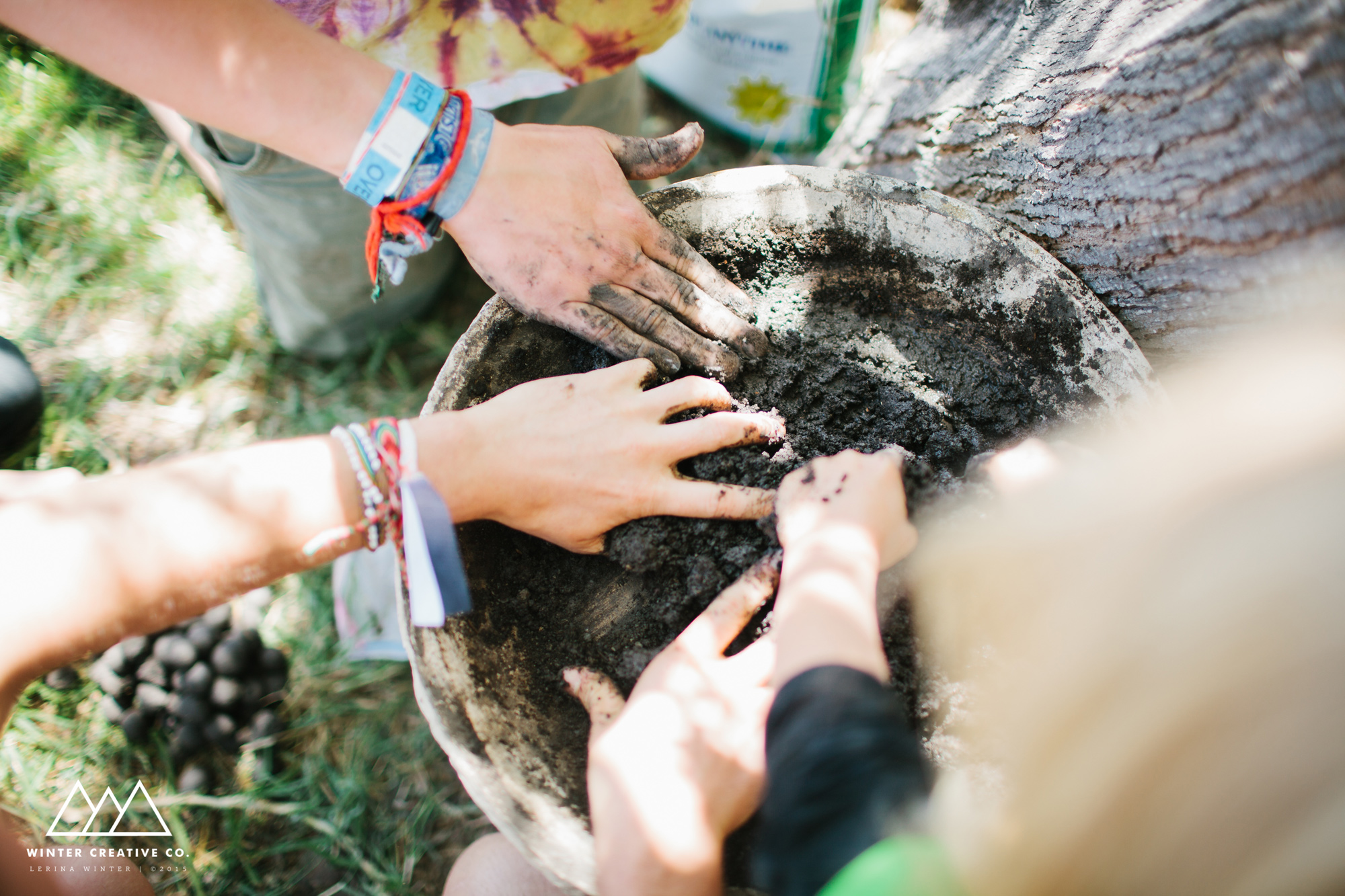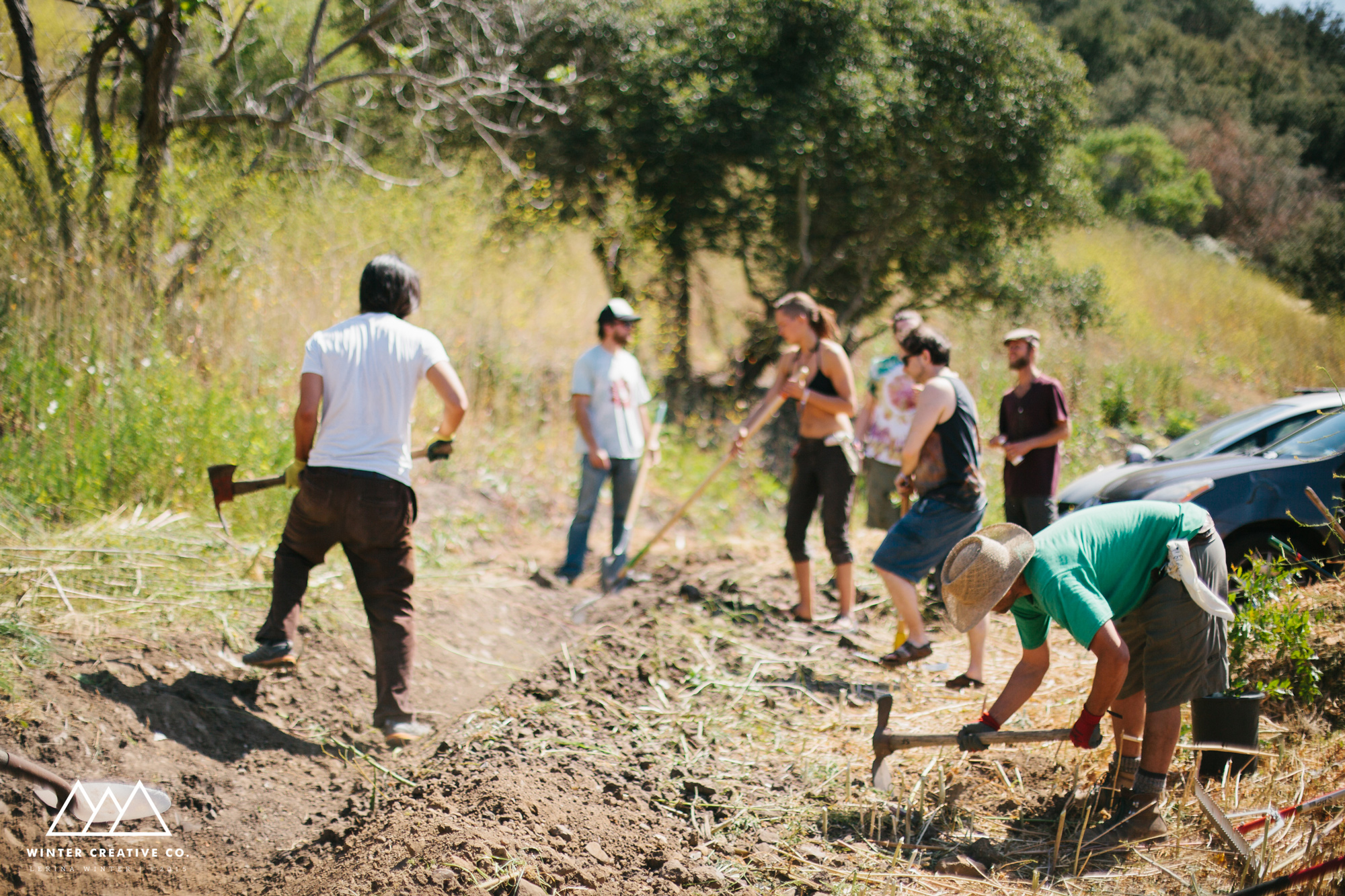Behind the awe-inspiring backdrop of our California landscape stems a rich history of ecological wonder waiting to be nourished. For centuries, nature has accepted humankind as their guest with arms wide open. Now the time has come to return the favor.
It is not often that the land we dwell on asks for our help, and when it does, how do we respond? The EcologyWorks course offered during Lucid University Courseweek immerses students into the soil and blossoms them into sustainable creatures that harvest from the land they walk on. Centuries of pollution, catastrophic fires, and water scarcity stain like blood on our hands because of mistreatment and disregard. I assure you, this is no guilt trip. Rather, it is a call for curiosity and appreciation to come together in a place where we may learn to sustain a better California landscape.
We spoke with courseweek instructor, permaculture farmer and educator Connor Jones about this year’s EcologyWorks offerings at Lucid University Courseweek. He points us to areas of concern within our current ecological structure and shares his inspiring gratitude and concern for this dense ecological history we are a part of. Read on and hear it from Connor himself…

The EcologyWorks Course description has some, perhaps, daunting vocabulary for the curious amateurs on the subject - myself included. What level of expertise will this course be catered to? (aka who is this course for?)
This workshop applies to anyone interested in the topic no matter how much they know at the moment. We are willing to go into any necessary explanations to help students have a full comprehension of the topics.
What can be expected of this course in terms of learning style? For example, I’m a hands-on learner. How dirty will my paws get?! 🙂
Its likely we’ll be doing lots of observation-based learning so be ready for hiking around the site and exploring the landscape! We may also do some brush management and wild harvesting of edible plants, herbs, and fungi.

Without spoiling too many details from the courseweek, what is our current ecological crisis? This is something I’m not particularly informed on and I suspect others might be curious as well…
These can be anything from water scarcity, flooding, soil erosion, regional and global climate change, species extinction, pollution, catastrophic fire, just to name a few major crises.
How did the curriculum for EcologyWorks come together? In other words, what inspires the urgency to teach more people about sustainability, ecology, agriculture, and such?
The curriculum arose from a deep appreciation for the astounding beauty and diversity of the California landscape. An understanding of its ecological history shows us that what we are seeing today is merely a fraction of the wildlife, ancient forests, flowing rivers, vast wetlands, and verdant Oak Savannahs that once existed here. The destruction of California’s functional ecosystems has a cascade of ill effects beyond just the loss of beauty. Water scarcity, flooding, soil erosion, regional climate change, species extinction, pollution, and catastrophic fire can all be inextricably linked to human land use patterns over the last few centuries. This can all change, we can regenerate California’s natural beauty and value while also designing for human needs to be met simultaneously. The passion and necessity for doing so is also what inspired this experience.

Given the current state of our ecosystem, how can we maintain a relationship with the fast-paced, ever-growing world we live in and still incorporate principles of permaculture? Where do we find the balance?
Well, it depends. The more knowledge one acquires, the better prepared one becomes for making ethical decisions in the varied contexts of life. This is often a question from students that they will be able to start answering for themselves by the end of the course.
What tangible skills will students walk away with?
To be perfectly honest… I don’t know. That will be up to them. Hopefully they learn enough to inspire them to learn more. Skills take time to cultivate and students play an active role in translating usable knowledge into tangible skills. Needless to say, I anticipate they will be walking away with something to grow with.


